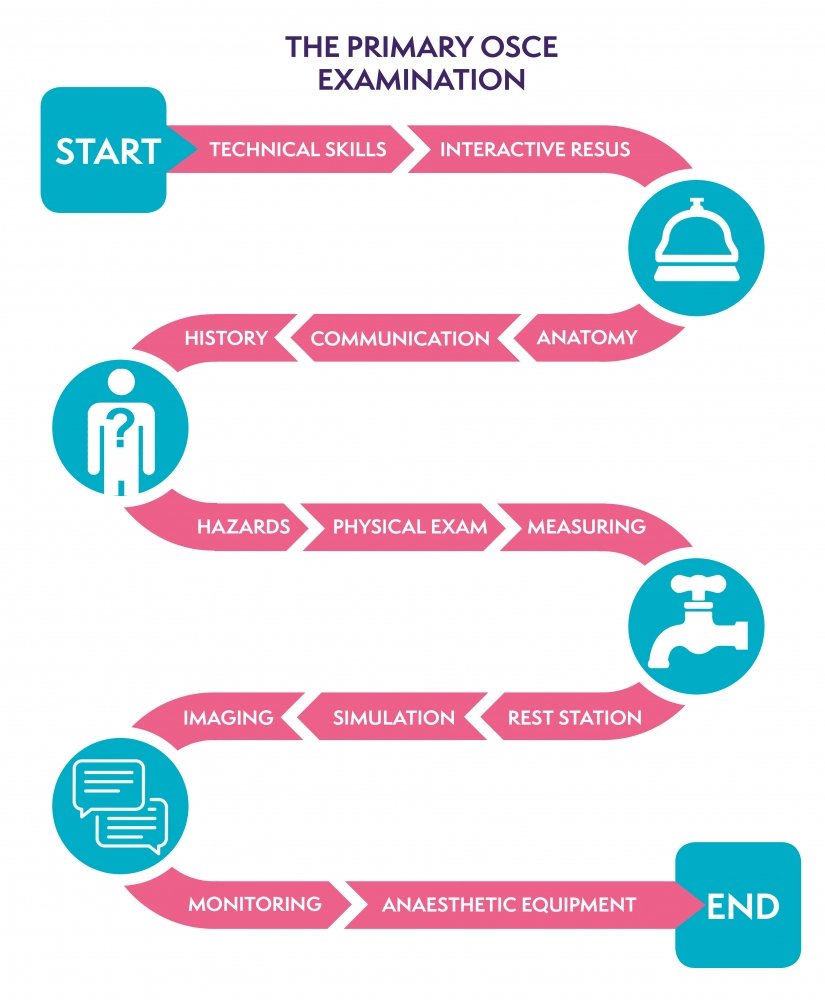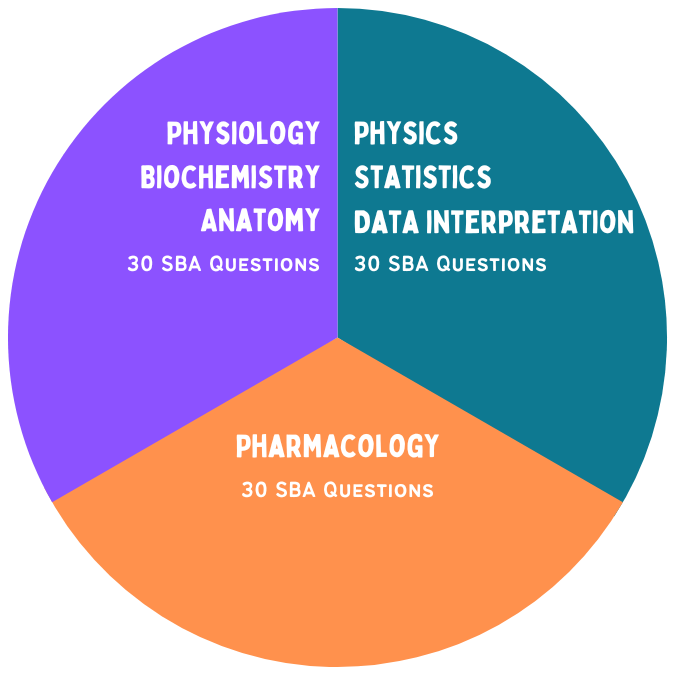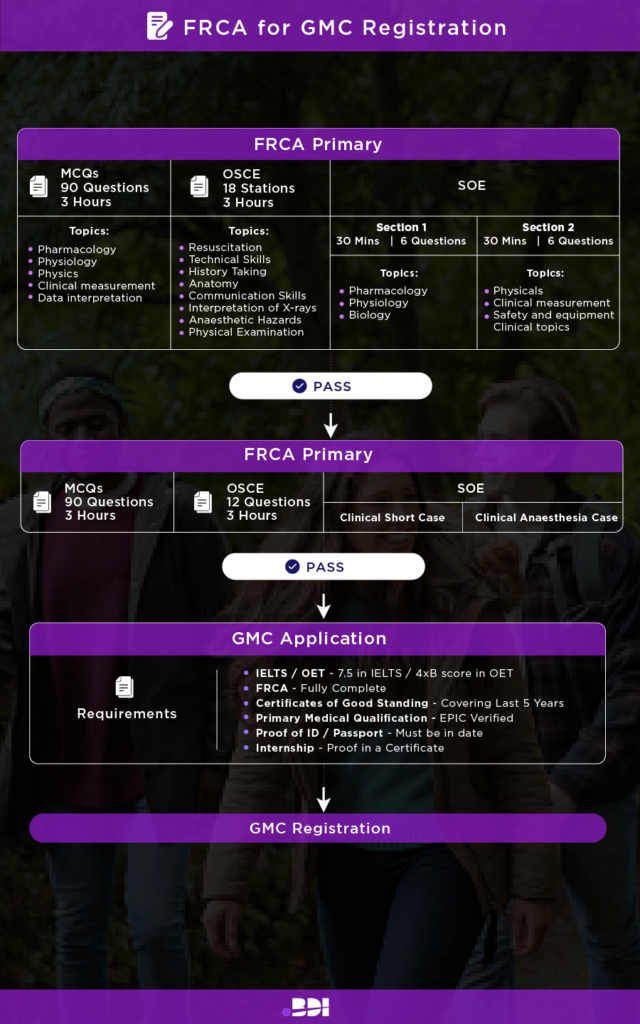I. Introduction
Definition of FRCA: The Fellowship of the Royal College of Anaesthetists (FRCA) stands as a prestigious accreditation in the realm of anaesthesiology. Established to uphold the highest standards of practice, FRCA signifies a culmination of rigorous training and expertise, elevating professionals to the forefront of healthcare excellence. This article has Comprehensive Insights into FRCA Exam: Syllabus, Formats, expenses and more.
In the dynamic landscape of 2023’s medical advancements, the relevance of FRCA amplifies. It serves as a cornerstone in ensuring practitioners possess the requisite skills and knowledge to navigate the complexities of modern healthcare.
II. The Evolving Landscape of Medicine in 2023
A. Rapid Advancements in Medical Technology:
The landscape of medicine is continually propelled by groundbreaking technological advancements. In 2023, the realm of anaesthesiology witnesses an unprecedented convergence of innovation. From sophisticated monitoring systems to AI-driven analytics, technology permeates every facet of patient care. FRCA stands as a guiding beacon, aligning professionals with these advancements. It equips practitioners with the expertise to harness these technologies effectively, ensuring optimal patient outcomes and safety.
B. Increasing Demand for Skilled Anaesthetists:
The evolving healthcare landscape brings forth an escalating demand for skilled anaesthetists. Statistics corroborate this surge, indicating a growing need for competent professionals adept at navigating diverse medical scenarios. FRCA, with its comprehensive curriculum and emphasis on practical skills, plays a pivotal role in meeting this demand. It molds individuals into proficient anaesthetists equipped to address the complexities of modern healthcare delivery systems. As the demand for quality care intensifies, FRCA-trained professionals emerge as indispensable assets in safeguarding patient well-being.
FRCA Exam: Syllabus, Format, and Components
The Fellowship of the Royal College of Anaesthetists (FRCA) examination stands as a pivotal milestone for anaesthetists aspiring to achieve advanced accreditation and recognition in their field. Comprising multiple parts, each meticulously designed to assess candidates’ knowledge, skills, and clinical acumen, the FRCA exam demands comprehensive preparation and proficiency. Let’s delve into its components, syllabus, and formats:
Primary FRCA Examination:
1. Written Examination:
Syllabus: Covers basic sciences, including physiology, pharmacology, anatomy, and physics, relevant to anaesthesia practice.
Format: Multiple-choice questions (MCQs) and short-answer questions (SAQs).
Topics: Physiology and Pharmacology (Pharmacokinetics/Pharmacodynamics), Physics and Clinical Measurement, Anatomy, and Essential Skills in Anaesthesia.
2. Objective Structured Clinical Examination (OSCE):
Syllabus: Focuses on clinical and communication skills, simulation scenarios, and professionalism in various clinical contexts.
Format: Station-based assessment, including practical stations, communication scenarios, and simulation exercises.
Topics: Clinical Skills (Airway Management, Monitoring), Communication and Professionalism, Simulation Scenarios.
Final FRCA Examination:
1. Written Examination:
Syllabus: Expands on advanced topics in anaesthesia, critical care, and perioperative medicine.
Format: Extended Matching Questions (EMQs), SAQs, and True/False questions.
Topics: Applied Sciences (Pharmacology, Physiology), Clinical Anaesthesia (Anaesthetic Practice, Monitoring), Critical Care, Pain Management, and Perioperative Medicine.
2. Oral Examination (Vivas):
Syllabus: Assesses in-depth knowledge, reasoning, and decision-making skills in various clinical scenarios.
Format: Face-to-face examination involving oral questioning by examiners on clinical scenarios and principles of anaesthesia.
Topics: Clinical Scenarios, Problem-Solving, Critical Analysis, Anaesthetic Management.
FRCA Exam Preparation:
Study Materials: Comprehensive textbooks covering basic and advanced anaesthesia topics, FRCA-specific study guides, online resources, and question banks tailored to FRCA syllabus areas.
Courses and Workshops: Preparatory courses and workshops designed to simulate exam conditions, offer practice sessions, and enhance clinical skills.
Practice Exams: Utilizing past papers, mock exams, and online practice resources to familiarize with the exam format and time management.
Understanding the Expenses Associated with FRCA Exam:
1. Examination Fees:
Primary FRCA Examination:
Written Exam Fee: Approximately $900 – $1,200.
Objective Structured Clinical Examination (OSCE) Fee: Around $1,000 – $1,500.
Final FRCA Examination:
Written Exam Fee: Roughly $1,000 – $1,500.
Oral Exam Fee: Approximately $1,200 – $1,800.
2. Training Course Expenses:
Preparatory Courses: Costs vary widely but can range from $1,000 to $3,000, depending on the course duration, study materials included, and the institution providing the course.
3. Study Materials:
Textbooks and Study Guides: Budget around $200 – $500 for essential textbooks.
Online Resources and Question Banks: Subscription fees range from $100 to $300 per year for access to question banks and study aids.
4. Travel and Accommodation:
Costs vary significantly based on location and duration of travel.
Estimate $500 – $1,500 for travel expenses (airfare, ground transportation) and approximately $100 – $200 per night for accommodation during exams or preparatory courses.
5. Examination Resits:
Additional fees for retaking specific components of the FRCA exams range from $500 to $1,000 per attempt.
6. Membership Fees and Registration Costs:
Membership Fees: Approximately $200 – $300 annually for membership with the Royal College of Anaesthetists.
Registration Fees: Vary, but usually around $100 – $200 per examination attempt.
7. Indirect Costs:
Indirect costs such as potential income loss due to dedicating time to studying can vary greatly based on individual circumstances.
III. Significance of FRCA in Career Advancement
A. Enhancing Professional Credibility:
FRCA accreditation serves as an emblem of professional competence and dedication. Its attainment significantly elevates an individual’s credibility within the field of anaesthesiology. The rigorous training and comprehensive assessments associated with FRCA instill a sense of trust among peers, patients, and healthcare institutions. Professionals adorned with FRCA credentials not only demonstrate theoretical knowledge but also showcase their practical expertise, bolstering their credibility as reliable practitioners.
B. Global Recognition and Mobility:
One of the hallmark features of FRCA lies in its global recognition. In an increasingly interconnected world, professionals with FRCA accreditation enjoy unparalleled mobility and opportunities on an international scale. The universal acknowledgment of FRCA transcends geographical boundaries, opening doors to diverse career prospects and collaborations across continents. As healthcare becomes more globalized, the portability of FRCA credentials positions individuals as versatile assets capable of contributing to healthcare systems worldwide.
IV. Rigorous Training and Expertise Development
A. Comprehensive Curriculum:
FRCA’s training program encompasses a meticulously crafted curriculum designed to cultivate well-rounded professionals in anaesthesiology. This curriculum spans an array of disciplines, including pharmacology, physiology, clinical practice, and critical care. Its comprehensiveness ensures that individuals undergo a holistic learning experience, fostering a deep understanding of the intricacies involved in anaesthetic practice.
B. Practical Exposure and Clinical Experience:
An integral component of FRCA training is the emphasis on hands-on experience and clinical exposure. Trainees engage in real-life scenarios, honing their skills in various clinical settings. This practical immersion not only fortifies technical expertise but also instills the ability to navigate complex situations with confidence and precision. The experiential learning offered through FRCA equips professionals to tackle the dynamic challenges encountered in the diverse landscape of anaesthetic practice.
V. Contribution to Patient Safety and Care
A. Ensuring High Standards of Patient Care:
FRCA-trained professionals serve as guardians of patient safety and well-being. The meticulous training and adherence to high standards established by the Fellowship ensure that practitioners prioritize patient care above all else. Through a combination of technical expertise, ethical considerations, and critical decision-making skills, FRCA-accredited anaesthetists consistently deliver optimal care, minimizing risks and maximizing positive outcomes for patients.
B. Emphasis on Ethical Practice and Critical Decision-Making:
An essential facet of FRCA training revolves around cultivating ethical practice and fostering critical decision-making abilities. In high-pressure scenarios where split-second decisions impact patient outcomes, FRCA-equipped professionals exhibit a profound understanding of ethical principles. This ethical compass, coupled with their adeptness at making critical decisions, ensures that patient care remains paramount in every circumstance, thereby fortifying trust between practitioners and their patients.
VI. Conclusion
A. Recap of Key Points:
In this comprehensive exploration of the Fellowship of the Royal College of Anaesthetists (FRCA), its profound significance in the medical domain of 2023 has been illuminated. From its role in aligning professionals with rapid technological advancements to its contribution to patient safety and care, FRCA emerges as a cornerstone in shaping competent anaesthetists and fostering excellence in healthcare delivery.
B. Call to Action:
For aspiring anaesthetists and healthcare professionals, the pursuit of FRCA accreditation stands as a transformative step toward personal growth and career advancement. The multifaceted benefits, including enhanced credibility, global recognition, and a commitment to patient-centric care, underscore the immense value of FRCA in today’s medical landscape. Embracing the path laid by FRCA not only elevates individual careers but also contributes significantly to the broader realm of healthcare excellence.
The Fellowship of the Royal College of Anaesthetists serves as a beacon of excellence, guiding professionals toward proficiency, ethics, and unwavering dedication to patient welfare—a hallmark of distinction and a catalyst for the advancement of anaesthesiology in the contemporary medical era.
Before we close, here’s another article you might find very useful in your FRCA journey. If you have any questions you can comment them download below or contact us. Cheers!
Mastering the FRCA: A Step-by-Step Guide to Training, Exams, and Careers in Anaesthesia








